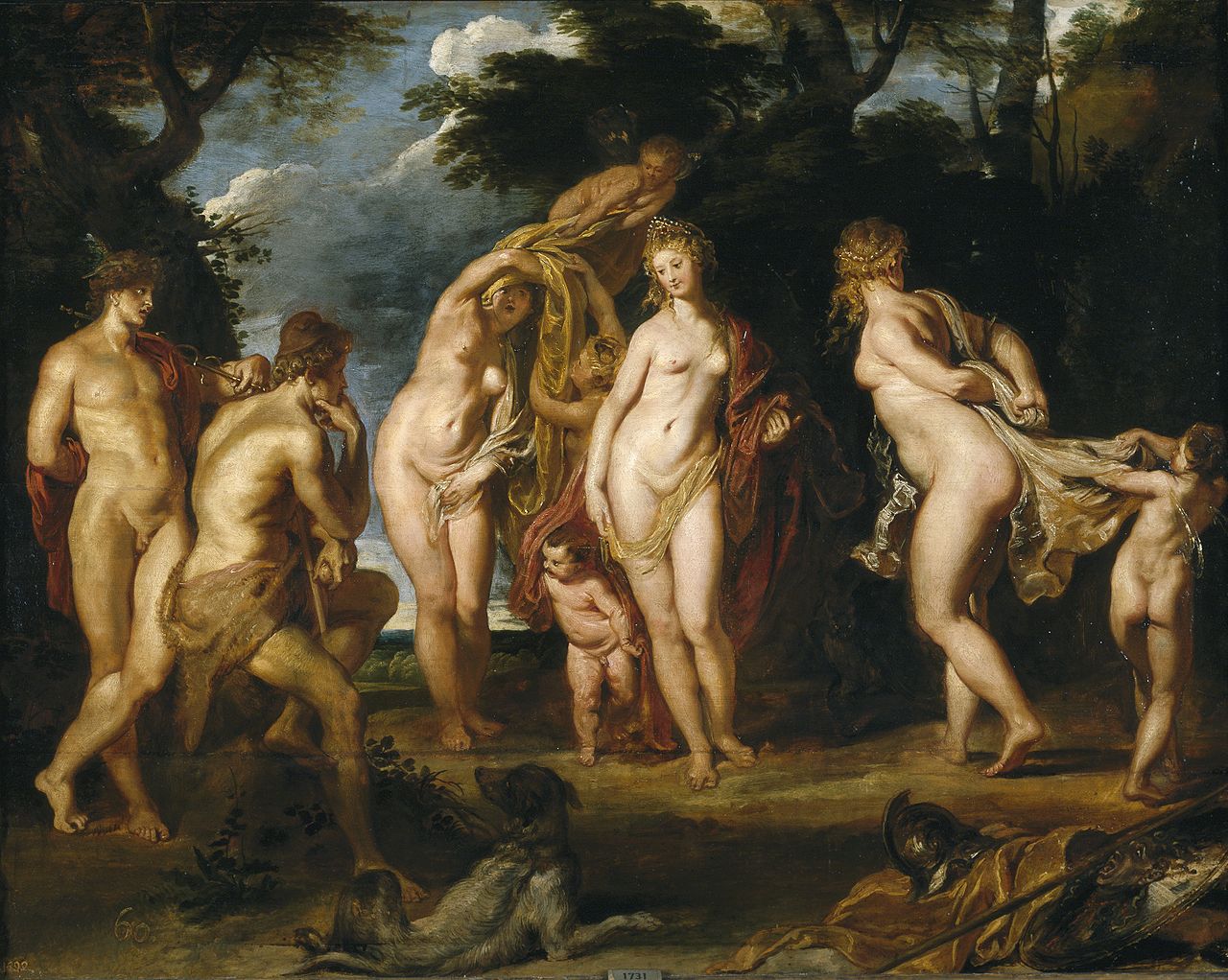Description
Another of Rubens's mythological works, The Judgment of Paris, describes the mythical Roman story of the same name in which Paris was forced to judge the most beautiful of the three goddesses: Venus, Minerva and Juno, in the events that triggered the Trojan War.
Eris, goddess of discord, was the only immortal not invited to an important wedding. Furious at being left out, she tossed a golden apple inscribed 'To the Fairest' among all the goddesses at the party. Three claimed the title: Minerva, Juno, and Venus. Jupiter, chief of the gods, declared that Paris should be the judge. The young man had been raised as a shepherd, but was actually a prince of Troy.
It is this moment of choice that Rubens has represented: Paris hands over the golden apple to Venus, goddess of beauty, in the center. All the goddesses had cheated. Juno offered Paris wealth and power, Minerva offered wisdom and strength. Venus promised the most beautiful woman in the world, Helen of Sparta, an irresistible gift.
In the clouds above their heads is implacable fury, Alecto. In a fit of jealousy, Juno ordered him to destroy the Trojans. He had Paris kidnap Helen and the famous Trojan War began.
Rubens's second wife, Hélène Fourment, 37 years his junior and niece of his first wife, Isabella Brandt, who died four years before their marriage, is said to have been the beautiful and exuberant model for the figure of Venus. A later version of The Judgment of Paris, painted in the late 1630s, is on display at the Museo del Prado in Madrid.
The Judgment of Paris refers to any of several paintings of the Judgment of Paris by Peter Paul Rubens.




